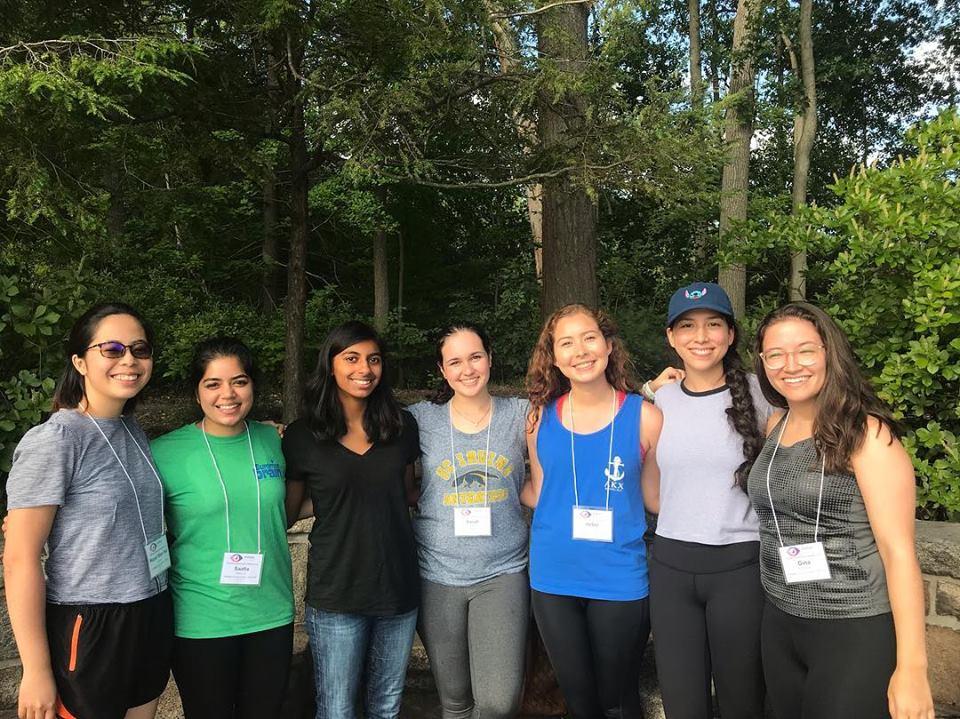As College Government (CG) prepares for a new election season, several important changes have been made to ensure a smoother election process. At the first Senate meeting of the semester, College Government President (CGP) Kimberly Chia Yan Min ’19 debuted these changes to the student body. Throughout the semester, Yan Min has been working with a collection of eight students recruited from the student body at large. These students are part of the College Government President’s Council (CGPC), and include Madeline Wood ’19, Holland Rhodd-Lee ’19, Hollis Rammer ’20, Kira Hamilton ’20, Tatiana Ivy Moise ’21, Carmen Chan ’22, Gaya Krishna ’22 and Jax Rousselot ’22.
One of the main changes this election season is the restructuring of the Elections Committee. Years prior, cabinet members were allowed to serve on the Elections Committee. According to Yan Min ’19, this was problematic because the Elections Committee was not fully representative of the student body. However, this year, College Government will be sourcing applications from students at large to join the Election Committee. The CG Elections Committee will be in charge of running ballot initiatives and ballot surveys –– two programs designed to help members of the student body have a greater say in the election process.
Through ballot initiatives, members of the student body can implement ideas for changes they would like to see on campus through a fund allocated for that purpose. Initiatives can address a variety of student concerns on campus –– from paying Residential Assistants (RAs) to installing printers in residence halls. Any student can suggest ballot initiatives, provided they follow a particular format, outlined in Yan Min’s email to the student body.
Ballot surveys allow College Government to collect data on the student body. CG is sourcing potential survey questions from the student body. A maximum of three survey questions will be selected by College Government for the final ballot. The survey questions are meant to collect information about the student body that is not already provided by Wellesley’s Office of Institutional Research. The information collected by the surveys will then be released to the student body, and can later be used for various purposes, such as student organizing. Past ballot surveys included questions about whether members of College Government should be compensated.
Other changes College Government plans to make this election season include an increased digital campaign presence. Yan Min hopes to create a central physical or digital location where all College Government election material can be accessed. She also hopes to place stricter electronic campaigning guidelines on potential candidates. Though these changes have not been confirmed or voted upon, many of these proposals were inspired by other colleges such as Smith, Mount Holyoke and Bryn Mawr.
According to Yan Min, these new changes provide much-needed improvements to the College Government election process. “[Elections had] become something that [were] procedural, controversial, and above all unfriendly to any student who wanted to contribute to College Government by serving in Cabinet.” She continues, “I agree with the view that elections will be messy regardless of the process –– standing for elections as a candidate is a difficult act, emotions can run high and most of all, students are managing elections for other students while juggling all the demands of student life … but there were many issues in previous elections that could be resolved both by amending procedures but also focusing on the right spirit and tone of elections.”
Cassiana Robinson ’22 is excited for these new changes. At the same time, Robinson stressed the importance of an intermediary step between ballot survey and generating actual College Government policies. “Just because [candidates] solicit suggestions from students doesn’t mean they have to implement those suggestions…there needs to be some way for College Government to be held accountable for their actions. Maybe those numbers could also be reported to the student body as well.”
Sophie Barowsky ’21 expressed similar opinions. “I’m really excited for these new changes. I think the centralized digital location for election materials will be especially pertinent for this election season. I think it will allow students to make more informed decisions when it comes to selecting a president.”
Overall, Yan Min hopes the new changes will make College Government more accessible to all. “Hopefully these new initiatives will allow students who are passionate about College Government, but not necessarily part of Senate to share their ideas with the community.”






